Why Doctor Who speaks subtly to queer people: A brief history of the show’s LGBTQ legacy
"As a gay and neurodivergent child, I often felt like I didn’t quite fit in" writes Doctor Who super fan Michael Sheridan for Attitude in this examination of the show's impact on our community
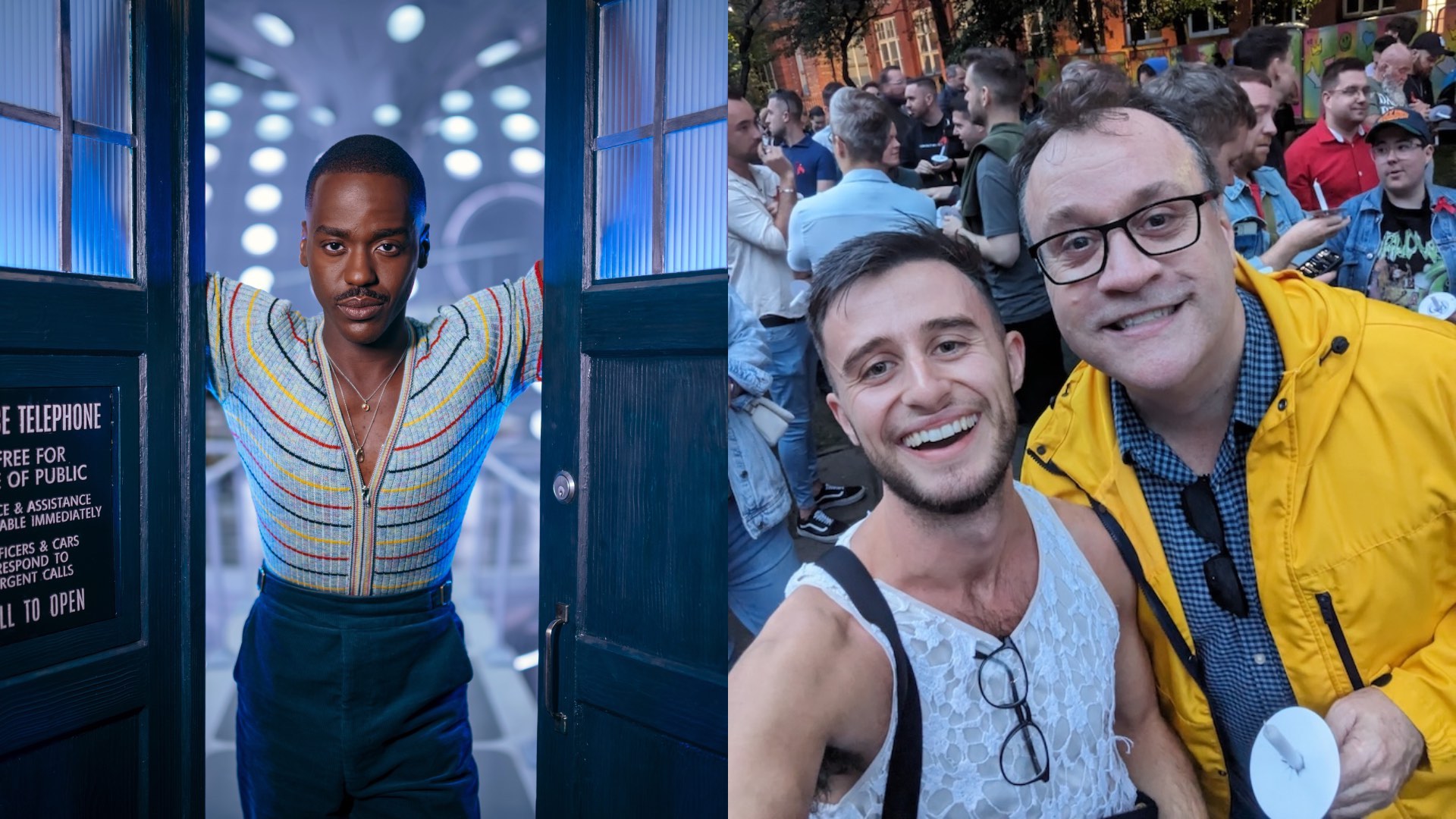
Doctor Who returned to screens this weekend, two decades since its 2005 Russell T Davies‘-driven revival. For many – including myself – Doctor Who is more than just a TV show. With its powerful themes of transformation and infinite potential, it has always resonated deeply with those of us who don’t fit into traditional boxes, particularly queer fans. As a lifelong Doctor Who stan, it’s played a huge role in my life; helping me navigate my queer identity and even sparking my career in TV.
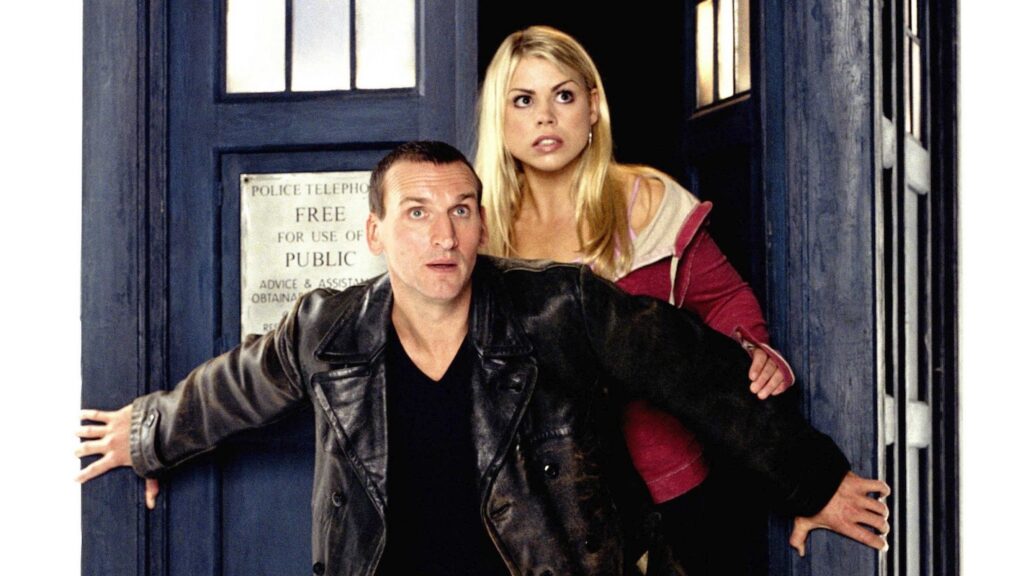
Growing Up With Doctor Who
Growing up, I’d vaguely heard Doctor Who mentioned by my dad, who’d been a childhood fan. But when it returned in 2005, just like the new companion Rose Tyler, I had no idea of the lasting impact the Doctor was going to have on my life, and just like Rose, my life was about to change forever.
I watched as an alien spaceship crashed into Big Ben and was instantly hooked. From that moment on, the whole weekend revolved around Doctor Who in our household. I hadn’t shown much interest in many things as a kid, but the show soon became my childhood (and adult) obsession: I asked for the DVD boxsets every Christmas, went to exhibitions and museums, had Doctor Who socks, pyjamas, blankets and even towels. I spent hours on YouTube learning to play the soundtrack on my keyboard. I wrote a 10,000-word essay on it for one of my A-Levels and continued to cite the show in university assignments. Every Saturday night, I’d rush home to watch it with my mum. It became a special part of our relationship, and she still says to me to this day: “Love you to Gallifrey and back.”
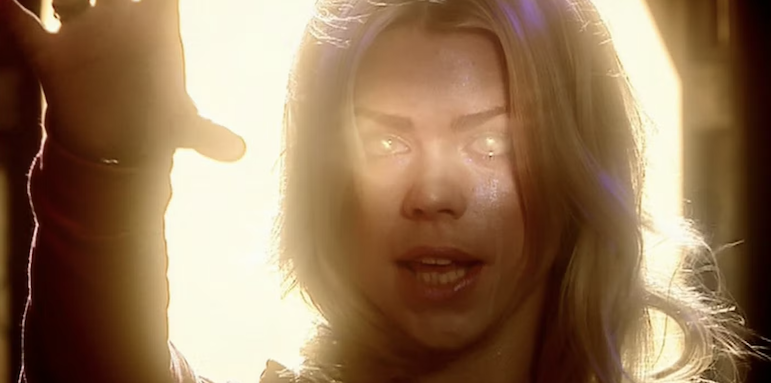
Finding Belonging in the Whoniverse
As a gay and neurodivergent child, I often felt like I didn’t quite fit in. But Doctor Who offered a place where I was accepted for my differences. At its core, the show is about someone who is different, who doesn’t have a home or a family, travelling the universe and forming found families along the way. That narrative deeply resonates with queer people. The Doctor rejects societal norms and often stands up to those in power, whether it’s the UK Prime Minister, the President of the Time Lords, or the Dalek Emperor. The TARDIS itself – a mysterious blue box that’s “bigger on the inside”– feels like a metaphorical closet, a reminder that we are all more expansive, layered, and full of potential than we may appear. Rose’s iconic moment as ‘Bad Wolf’ [above] absorbing the heart of the TARDIS and declaring: “I can see everything. All that is, all that was, all that ever could be,” captures the spirit of boundless identity and possibility that can be a key part of the queer experience.
The aliens of Doctor Who come in all shapes and sizes – from the grotesque to the humanoid. The idea that anyone, regardless of how they look, can be accepted into the ‘Whoniverse’ is a powerful message of belonging. Even characters who appear human often turn out to be aliens – mirroring the experience of queer people with hidden or closeted identities.
Search ‘Doctor Who LGBTQ+’ and you’ll find blogs, forums, books, merch, and fan groups galore. From the Sisterhood of Karn and Doctor Who Pride events in Cardiff and Coventry, to a spectacular drag show (which for any Doctor Who fan, queer or not, I highly recommend), Gallifrey Cabaret. In 2007, when the series finale clashed with London Pride, it was even screened in Trafalgar Square.
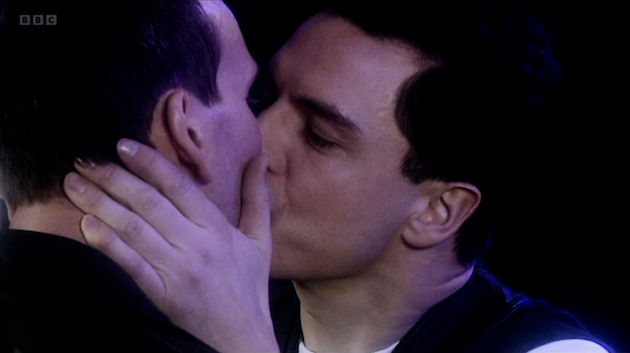
How Doctor Who Got Even Gayer
It’s easy to see why Doctor Who has always had a cult queer following, even during the ‘classic’ era’ – from the camp glittery outfits to queer-coded characters like the 7th Doctor’s companion Ace. Behind the scenes, key figures like Warris Hussein (the director of the very first episode in 1963) were openly gay. It seems fitting, then, that T Davies – the creator of groundbreaking gay drama Queer As Folk – rebooted the show in 2005. (Naturally, Queer As Folk features a Dalek-obsessed Whovian as one of its lead characters.)
At the time, LGBTQ+ representation was still rare in British media. Section 28 had only recently been repealed in 2003, and the Civil Partnership Act 2004 had just passed. We were starting to see glimpses of queer visibility through the likes of trans Big Brother winner Nadia, and Todd Grimshaw in Coronation Street, but representation was limited. So when the 2005 finale featured a same-sex kiss between the Doctor and the pansexual Captain Jack [above] – on primetime, pre-watershed TV – it was revolutionary. For me, it was likely the first time I’d ever seen two people of the same gender share an intimate moment on-screen.
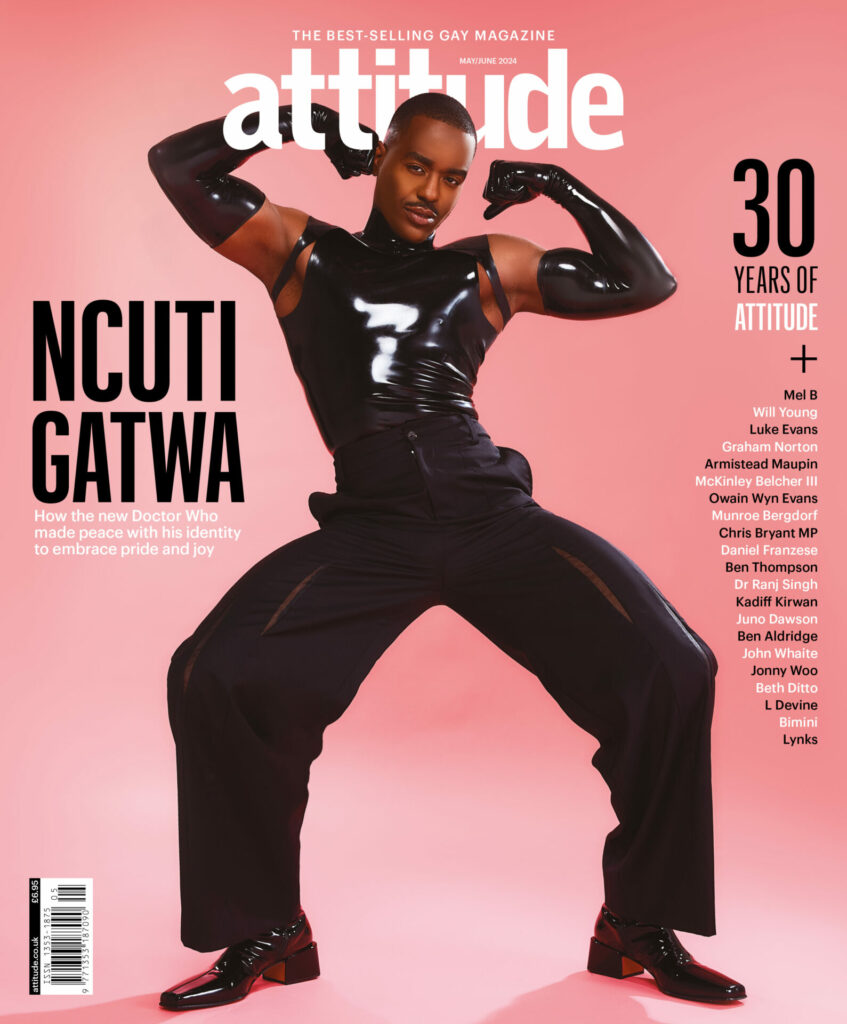
And Even Gayer…
Since then, the show has only grown queerer. We’ve had characters like the Victorian, sapphic detective couple Jenny and Vastra (high-camp!), the first full-time lesbian companion Bill Potts, and the fabulous Missy – the first female incarnation of the Master. In the Christmas special 2017, the Doctor also changed gender, regenerating into Jodie Whittaker. And with T Davies returning as showrunner in 2023, queer representation has increased tenfold. We’ve had our first major trans character, Rose Noble (played by Heartstopper’s Yasmin Finney), a non-binary villain played by drag royalty Jinkx Monsoon, and now, finally, a queer, Black Doctor in the form of the iconic Ncuti Gatwa [pictured above on the cover of Attitude]. This weekend’s episode featured big, camp robots and even threw in a reference to Kylie Minogue’s ‘Padam Padam’.
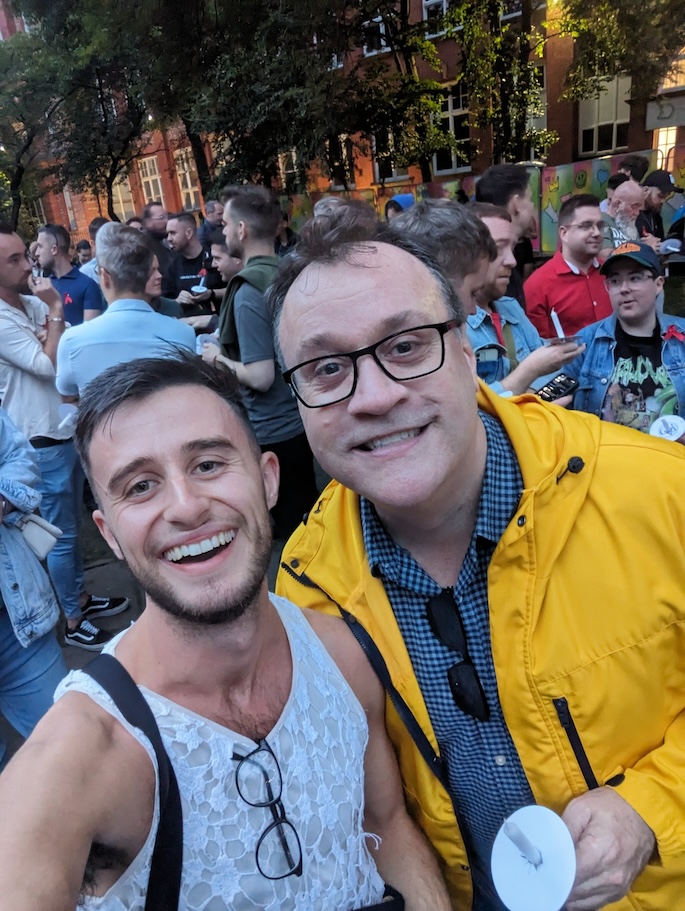
Doctor Who and Me
Doctor Who has been a huge influence on me – and I even have it to thank for my career in TV. Watching the behind-the-scenes sister show Doctor Who Confidential, sparked my passion for TV production. I became fascinated with the mechanics of storytelling. Since then, the show has continued to cross paths with me in weird and wonderful ways – from bumping into T Davies at a Manchester Pride vigil [above] to discovering that I might be distantly related to Sylvester McCoy, the 7th Doctor, after randomly meeting him in a pub in my hometown.
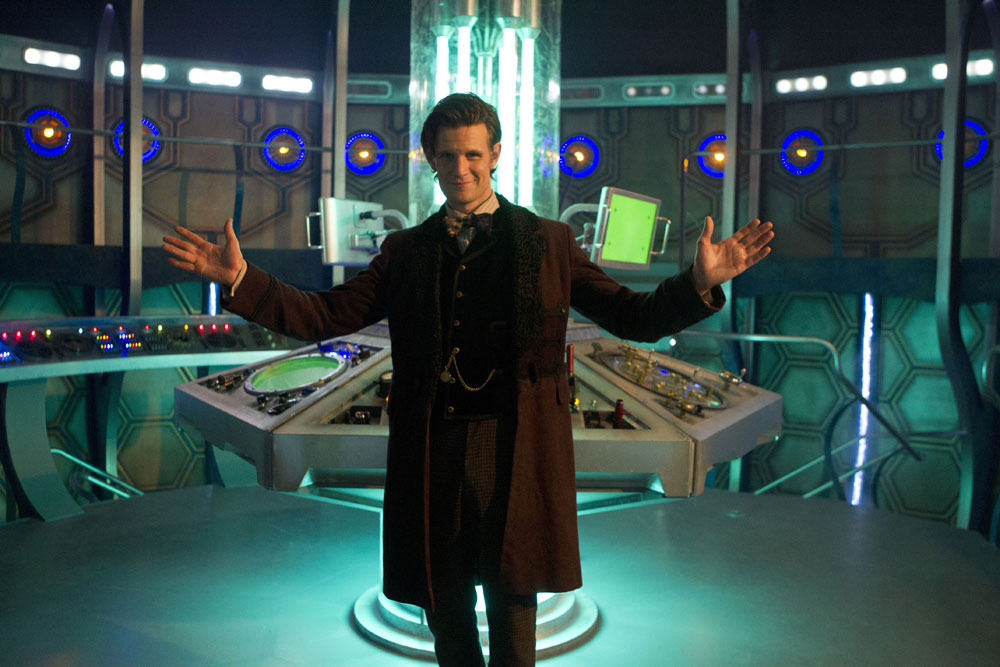
Into The Future & Beyond
Doctor Who has survived cancellations, reinventions, and shifting audiences. It’s more than a show – it’s a legacy. It still makes me laugh, scream, and cry like nothing else. During the pandemic, fans held virtual watch parties and formed an online Doctor Who choir and orchestra (which I joined, along with over 300 other fans). The fandom’s enduring spirit is proof that Doctor Who continues to be a beacon for anyone who’s ever felt different, reminding us that, like the TARDIS, we are all “bigger on the inside.”
I hope that in another 20 years, I can look back and write again about how the next two decades of Doctor Who have continued to amplify LGBTQ+ voices and be a catalyst for change. Who knows – maybe one day, I’ll even be working on the show. I don’t have a TARDIS to see the future… but time will tell.
